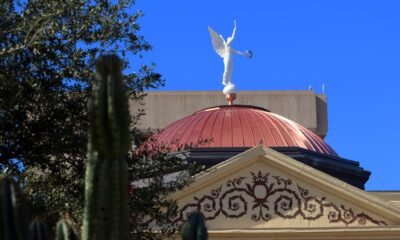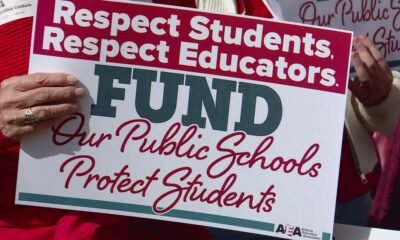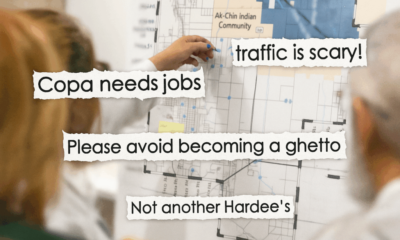Arizona Diamondbacks
Lawmakers Must Answer Key Questions Before Granting Billionaire Stadium Bailouts

Behind closed doors, Arizona politicians are in negotiations that could compel taxpayers to contribute up to $1 billion. This plan aims to redirect public funds to support a private sports franchise owned by billionaire Ken Kendrick.
Kendrick, who owns the Arizona Diamondbacks, is more than capable of funding stadium construction himself. The franchise’s valuation has skyrocketed to $1.6 billion since Kendrick’s purchase in 2004, reflecting a nearly sevenfold increase. According to one economist, public subsidies for arenas are detrimental, representing a significant misallocation of governmental resources and risk redistributing wealth from the general populace to the affluent.
The justification for this financial maneuver is based on the assumption that it only affects those who attend games. However, this assertion is misleading. If lawmakers proceed with this stadium initiative, the State of Arizona, Maricopa County, and the City of Phoenix stand to lose revenue vital for public services like schools and safety. Already strained budgets may lead to higher taxes or further cuts to essential services.
Arizona ranks 11th in the nation for combined state, county, and city sales taxes, with recent increases reflecting financial pressure on residents. Meanwhile, the state is near the bottom for per capita investment, emphasizing the urgent need for funding in critical areas. Diverting tax revenue to support a wealthy franchise owner could exacerbate these issues.
Studies consistently indicate that arena subsidies yield minimal benefits, challenging the economic claims surrounding such ventures. Proponents argue that if the Diamondbacks aren’t playing, revenue is lost. This overstated claim overlooks the reality that most spending at stadiums typically replaces other local expenditures, merely shifting economic activity rather than creating new wealth.
The franchise’s recent history adds complexity to the debate. In 2017, Kendrick sued Maricopa County for renovation costs despite taxpayers having contributed over $250 million to the original ballpark. The settlement aimed to absolve taxpayers from further financial obligations. The current request for additional taxpayer funding raises questions about the team’s financial planning and decision-making.
Concerns about the team’s potential relocation frequently arise. However, relevant market data suggests few viable alternatives within the U.S. to Arizona’s robust metropolitan environment. Comparably-sized cities have existing teams, rendering relocation difficult. Recent threats of losing spring training in Arizona, should taxpayer dollars not be allocated for upgrades, further complicate this landscape.
Furthermore, Kendrick’s political contributions have sparked ethical concerns. He and his wife spent nearly $1 million in 2024 to influence Arizona’s legislative control. This financial backing led to the swift sponsorship of the stadium funding bill by Representative Jeff Weninger shortly after his election. Such ties have drawn scrutiny and raised flags regarding potential conflicts of interest.
Taxpayer dollars spent on stadium subsidies ultimately detract from essential services like public safety, education, and infrastructure. The return on investment in public services is far greater than any perceived benefits from supporting a billionaire-owned sports franchise.
Instead of moving forward with the current plan, lawmakers should put this issue to voters. National sentiment shows mixed reactions towards taxpayer funding for sports venues. Recent rejections of similar propositions indicate that public opinion may not favor subsidizing a lucrative private enterprise.
Arizonans deserve a tax policy that equitably benefits all citizens and should prompt Gov. Hobbs and state lawmakers to reflect on their responsibilities before making decisions with long-lasting repercussions.


















